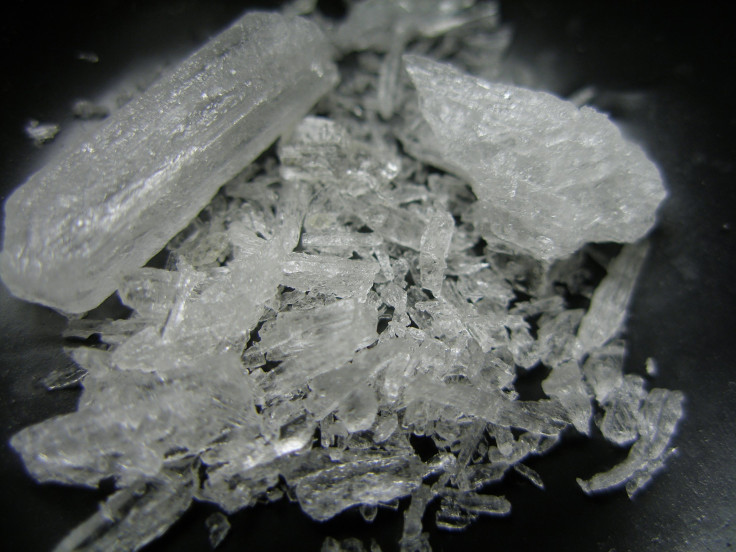Crystal Meth: North Korea's New Medicinal Cure-All Is Becoming A Nationwide Epidemic

Desperate North Koreans are using methamphetamine as a poor’s man substitute for scare medicines, Public Radio International reported Tuesday.
“Many people in the North are using [methamphetamine] for medicinal purposes,” Jason Strother, a journalist, said in a radio interview. “The hospital systems are broken down and they don’t have the medication.”
Lacking medicines across the spectrum, North Koreans are using the drug to treat health ailments — large and small — as well as cosmetic problems. Strother said he spoke to a woman who defected from North Korea, where her mother had convinced her to use crystal methamphetamine, watered down, as a solution to treat acne.
“So it’s pretty much used as a cure-all,” Strother said.
According to the report, the North Korean government funded the production of methamphetamine early last decade, leaving that production knowledge with countless cooks throughout the country. Although the drug remains technically illegal, methamphetamine is widely produced in home kitchens with large swathes of the population addicted.
As many as half of North Koreans living in the northern region bordering China are addicted to methamphetamine, according to a study published in the journal North Korean Review. “Everyone from middle school students to government officials uses it,” Strother said.
Another defector from the North described the wide availability of methamphetamine in the secretive country. “It’s easy to walk down the street and find people selling it on the street,” the defector told Strother.
Without mentioning America’s problem with crystal methamphetamine, Strother described the pervasive use of the drug in North Korea as reflective of social breakdown in the country. “There’s absence of rule of law, very little medicinal help, so they’re using crystal meth just to cope.”
Andrei Lankov, a researcher at South Korea’s Kookmin University, writes of a dramatic upsurge in methamphetamine use beginning in 2005 or 2006 in the country’s northern region in particular. “Numerous interviews with defectors paint a worrying picture of the escalating drug abuse,” he wrote. “This evidence comes from multiple unconnected sources, and in most cases the defectors' statements demonstrate remarkable coherence.”
Likewise, study co-author Kim Seok-Hyang described the intransigence of the country’s crank problem. “Almost every adult in that [northern] area has experienced using ‘ice’ and not just once,” he said. "I estimate that at least 40-50 percent are seriously addicted to the drug.”
Whereas once opium reigned as North Korea’s national drug, methamphetamine kitchens have replaced poppy fields as the way to cope. Now, so interwoven is the drug with daily life that not even the nation’s leader, no matter how dear, may stop it.
Below is an audio report from Public Radio International:
Source: Lankov A, Kim SH. A New Face Of North Korean Drug Use: Upsurge Of Methamphetamine Abuse Across The Northern Areas Of North Korea. North Korean Review. 2013.



























